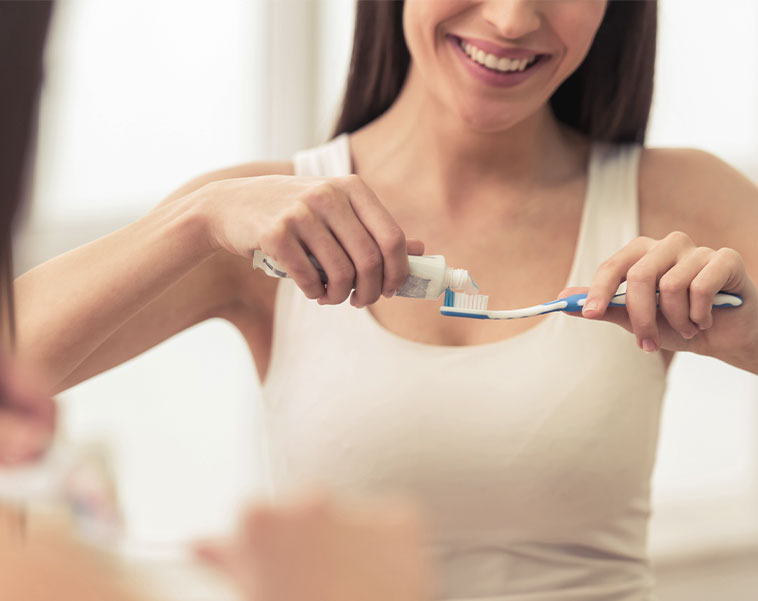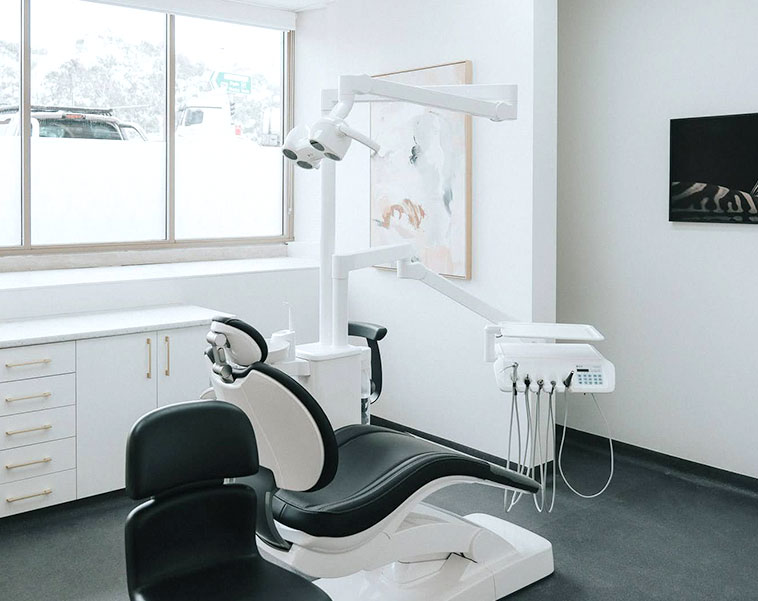


Start with effective daily home care
Preventing gum diseases like gingivitis and periodontitis begins with dedicated care for your teeth and gums. It involves employing effective daily home care oral hygiene habits.
Contact us

1. Brushing
Brush your teeth at least twice daily for a minimum of 3 minutes, employing either a manual or electric toothbrush.
Electric toothbrushes like the Oral-B offer several advantages for optimal oral care. The technology provides efficient plaque removal and gentle yet thorough cleaning, thanks to features like oscillating-rotating movements and pressure sensors. The smart technology ensures precise brushing, and gives guidance on optimal brushing time and pressure. Additionally, their various modes cater to individual needs, including sensitive teeth or gum care, enhancing overall oral hygiene for a healthier mouth.

2. Interdental Cleaning
Interdental cleaning is a crucial part of oral hygiene, targeting spaces between teeth where brushes can’t reach. This should be done twice daily with either interdental brushes (eg. Tepe brand) or dental floss, and adapting different brushes to different gap sizes.
Regular interdental cleaning promotes healthier gums, reduces the risk of bad breath, and enhances overall oral health.
When gums bleed while brushing, it’s often a signal of early gum issues or incorrect brushing methods. It’s crucial not to stop flossing despite the bleeding. Instead, switch to a soft-bristled toothbrush, maintaining gentle pressure while brushing twice daily. Focus on correct technique, using circular motions along the gum line. Include interdental cleaning with floss or interdental brushes to remove plaque between teeth. Remember, within a short period, consistent proper oral care usually reduces bleeding. However, if bleeding persists or worsens, seek prompt dental care for guidance on maintaining good oral health.
Targeted Cleaning: Pay extra attention to thoroughly clean around crooked or crowded teeth, fillings, crowns, and dentures. These areas tend to accumulate plaque and may require specialized cleaning techniques.

3. Antiseptic Mouthwashes
After brushing, consider using antiseptic mouthwashes twice daily which may help to prevent plaque build-up for up to 12 hours. It can also help contribute to fresher breath.
Studies show that antiseptic mouthwashes such as those with the active ingredient chlorhexidine, essential oils (such as thymol, eucalyptol, menthol, or methyl salicylate), or cetylpyridinium chloride (CPC) can reduce gum inflammation by approximately 20-30% and gum bleeding by around 30-40%.
However, it’s crucial to note that while scientific evidence supports their efficacy, these mouthwashes shouldn’t replace brushing or flossing. Some antiseptic mouthwashes may have side effects like staining or taste alterations, so consulting your periodontist for guidance on the most suitable option based on scientific data is recommended for optimal oral health.
Experience & ExpertisePatient Referrals
Patient referrals are always welcome, though not necessary. Individuals can reach out to us directly and Enquire Online. Dental practices are invited to streamline the referral process through our convenient online Patient Referrals system. We value collaboration with fellow dental professionals and look forward to partnering with you to provide comprehensive and specialized care for our mutual patients.
Enquire Online Patient Referrals

